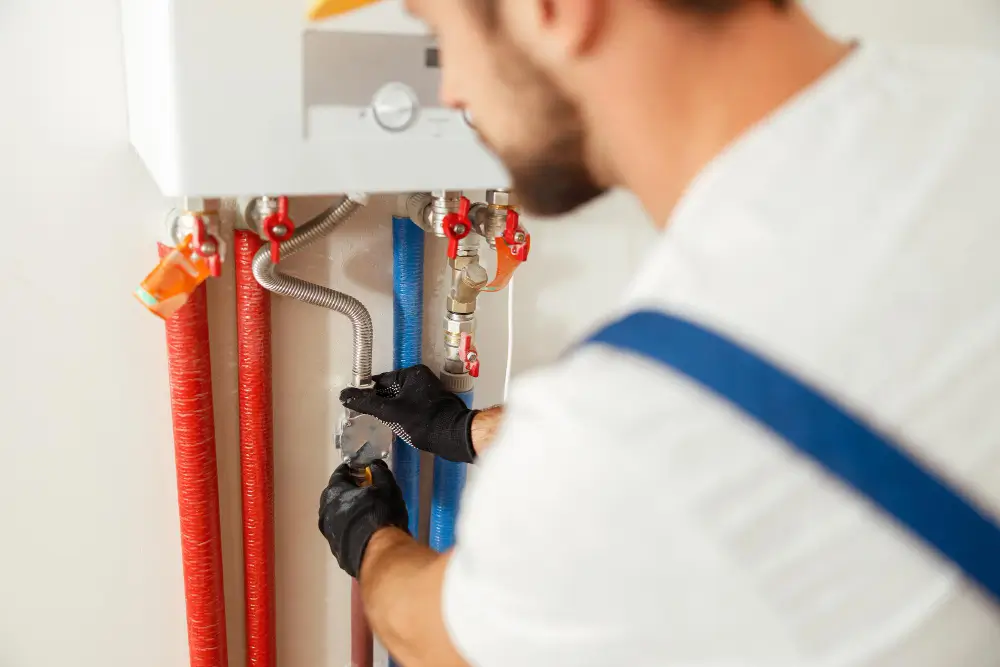Domestic gas boilers are used for heating homes and providing hot water. They’re an integral part of many household heating systems, particularly during the winter. Gas boilers burn natural gas to generate heat, which is transferred to water via a heat exchanger. This heated water is either circulated through radiators for central heating or stored in a tank for hot water use. The combustion gases are safely vented outside through a flue system.
There are three main types of gas boilers. Combi boilers provide both heating and hot water on demand, making them compact and ideal for smaller homes. System boilers require a separate hot water cylinder and are suited for larger homes with higher hot water needs. Conventional boilers also need a separate hot water cylinder and cold water tank, but are less commonly used due to their less efficient setup.
Modern gas boilers are highly efficient, with many models reaching 90% or more in energy efficiency. The higher the efficiency, the less gas is needed to heat the home, resulting in lower energy bills and a smaller environmental impact. Gas boilers require annual servicing by a Gas Safe registered engineer to maintain efficiency and safety. Common issues include leaks, pressure loss, and faulty thermostats. Regular maintenance helps prevent more serious problems and ensures optimal operation.
Safety is critical with gas boilers. A gas leak or malfunctioning boiler can be dangerous. Carbon monoxide, a deadly gas, can build up if the boiler isn’t properly vented. Regular inspections and having a carbon monoxide detector nearby are essential for safety. While gas boilers are more efficient than older models, they still rely on fossil fuels, contributing to carbon emissions. Technological advancements, like condensing boilers, help reduce emissions which is why in the last decade we have seen condensing boilers replace older boiler across the UK.
In the UK, there are several legal requirements governing gas boilers, primarily focused on safety, efficiency, and environmental impact. Boilers must be installed by a Gas Safe registered engineer, ensuring that installation and maintenance comply with the Gas Safety (Installation and Use) Regulations 1998. All new gas boilers must be condensing models, which are more energy-efficient because they recover heat from the exhaust gases, making them at least 90% energy-efficient. This is a requirement under Building Regulations Part L (conservation of fuel and power), which aims to reduce energy consumption and emissions in domestic properties. Boilers must also be equipped with a flue system to safely vent combustion gases outside the building, ensuring that harmful gases like carbon monoxide do not pose a risk to occupants.

Installing a gas boiler is a technical process that must be carried out by a Gas Safe registered engineer to comply with UK safety regulations. Here’s a step-by-step overview of the process:
At KCS Electrics, our qualified gas engineers have the expertise to meet the specific heating and safety needs of your property. With extensive experience installing boilers in all types of homes, we’re equipped to handle every stage of the installation process with precision and care. Simply get in touch, and our team will promptly visit your property to carry out a full assessment and professional installation. We take pride in delivering reliable, high-quality boiler installation services at competitive prices.